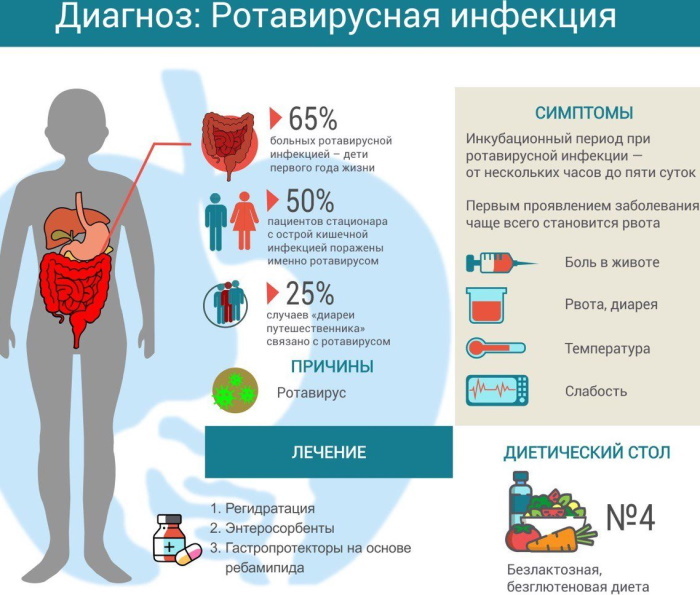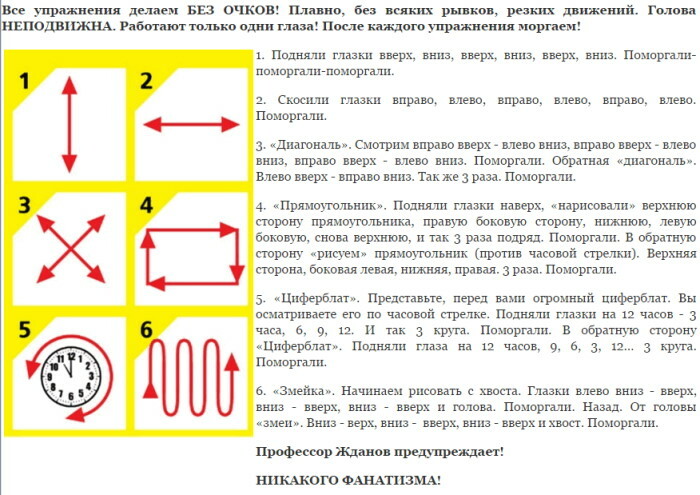Content
- The essence of transactional analysis according to Eric Berne
- 3 ego states
- Parent
- Child
- Adult
- How to determine what state a person is in?
- The history of the discovery and study of transactional analysis
- Theories
- Ways to interact with people
- Transactions
- Stroking
- Games by E. Bern
- Types of transactions
- Parallel
- Intersecting
- Hidden
- Corner hidden
- The place of transactional analysis among the directions in psychology and psychotherapy
- Transactional Analysis Videos
In psychology, the concept of transactional analysis is a theory human position in society. It is based on the assertion that from childhood a person acts according to decisions programmed for certain life positions.
The individual always performs actions according to the existing script, which was written for him by those around him. These are parents, peers, and teachers. As a result, it turns out that an adult makes decisions based on a model of behavior that was previously vital, but has now become useless.
The essence of transactional analysis according to Eric Berne
Transactional analysis in psychology is a process of personality modeling. This is what psychiatrist Eric Berne's theory is based on. The purpose of the analysis is to form an individual who is able to successfully adapt to current situations. This can be achieved by revising existing life attitudes, identifying patterns of behavior that have already become unproductive.
According to Berne, it is necessary to eliminate models that interfere with making adequate decisions. On the basis of the theory, the purpose of the analysis should be the formation of a new system of values according to the needs and capabilities of a person in a particular situation.
The theory of transactional analysis was developed in 1950. Its author Eric Bern actively used his developments in clinical practice, since he was a doctor.
It was he who defined the main key concepts of transactional analysis:
- a game;
- ego state;
- scenario.
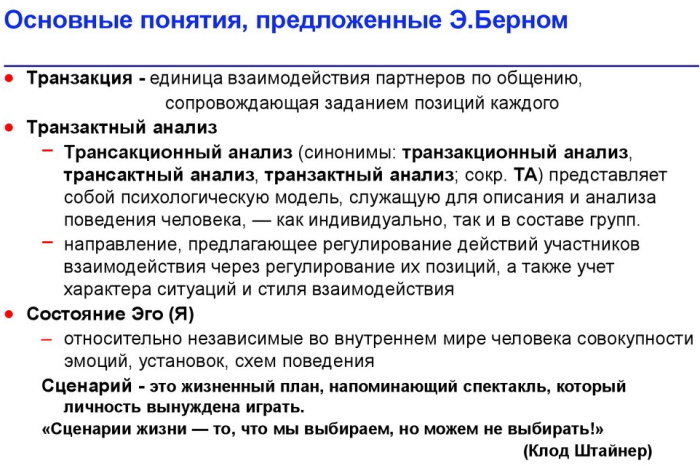
These terms are actively used in modern psychotherapeutic practice.
3 ego states
Transactional analysis in psychology is a theory of personality. Therefore, it must reveal the psychological anatomy of a person. For this, the “ego” model is applied, which consists of 3 levels. Thanks to her, you can understand how the individual behavior of a person is expressed in various social situations.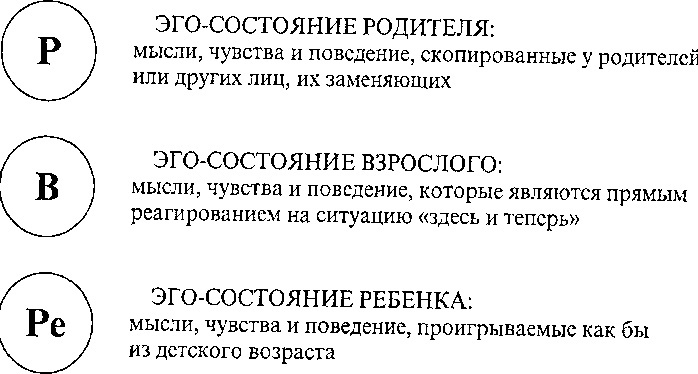
All human life is divided into 3 states:
- parent;
- child;
- adult.
Parent
For the first 3 years of his life, the child is completely dependent on his parents. He adopts their experience, knowledge. During this period, a great responsibility is assigned to an adult. He must teach the child all the safety rules, the ability to express his feelings, express thoughts, show emotions.
Children always watch adults very closely. Certain images and patterns of behavior are formed in their heads. In psychology, this technique is called introject. In adults, most often in the minds of a large number of introjects, which consist of the images of brothers, sisters, relatives.
In the ego state of the parent, internal images are divided into 2 types:
- Caring - these are images that are characterized by kindness and love. When a person is in this state, he relaxes, becomes calm and balanced. Such an individual is always ready to provide assistance to those who need it. This is a diplomatic person. He is trying to find a way out of any conflict situation peacefully.
- Supervising - a person with constant internal criticism. He rereads to beginners, does not allow them to develop, independently solve the tasks and goals. Such an individual will always find flaws in others, often showing aggression and anger towards others.
The ego-state of the parent is necessary for the process of establishing contact with people around, organizing successful communication with them. Sometimes situations arise when internal images begin to dominate. The individual develops an internal conflict. Because of this, a person begins to act as the formed images from childhood indicate to him.
Child
Being in the ego state of a child, a person gets an emotional experience. It begins to form already at the moment when the child is in the womb. After birth, the experience is already passed on from the parents. The important point is that children are not able to think rationally. Children up to those years are very sensitive to changes in the emotional state of their parents. But they are not yet able to accumulate titles on a large scale.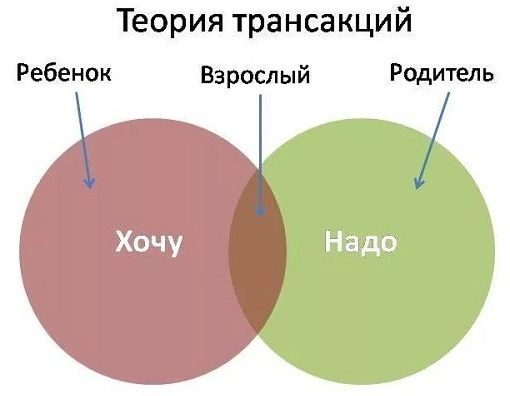
The ego-state of parents differs from children in that the former are characterized by inhibitions, and the latter are characterized by emotions and feelings.
This condition in psychology is divided into 3 types:
- Rebellious - typical for a person who gets tired of everything. A prime example of this type is adolescents who find themselves in informal subcultures. Most often, this condition occurs in the return of 14 years. After that, a dramatic change occurs. Teenagers begin to try everything that was previously forbidden.
- Adaptive - a condition in which a person often experiences fear, depression, depression. He does not follow his own principles, but only pays attention to other people's opinions. Such people are always afraid of being rejected.
- Free - This is a condition characteristic of those who were allowed a lot of things in childhood. Most often these are children from families with high incomes. They are creative and cheerful personalities, which are characterized by creative thinking. Such individuals have very changeable moods and interests. With sudden changes in mood, these people can give up everything.
The child's condition has a significant drawback. It is far from reality in comparison with the condition of the parents.
Adult
This is an intermediate state between parent and child. These are individuals who completely ignore all prohibitions and requirements. They make decisions very competently, having previously analyzed all the nuances.
The main features of the behavior of each state can be displayed in the table:
| Ego state | Methods of behavior |
| Parent | If a parent is caring, he guides, helps, consoles. His main phrases are: "I will help you", "There is no need to be afraid." The critical parent always commands. |
| Adult | This individual collects and analyzes information, makes a decision based on the data received. |
| Child | If a child is rebellious, he challenges everyone. The spontaneous individual is characterized by impulsive and cunning behavior. |
How to determine what state a person is in?
Transactional analysis in psychology is the ability to determine the ego state by controlling one's behavior, manner of communication, thoughts.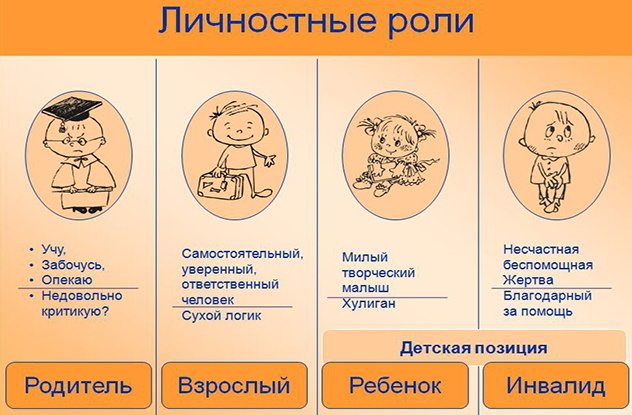
Each of the conditions is characterized by certain features:
- for the state of "adult" - such an individual always wants to get his own benefit. Before starting to solve any problem, he chooses all possible options for achieving the goal. It is important for him to spend the minimum amount of effort;
- for parents" - this is a person who controls everyone around him, he points out to everyone the shortcomings, often makes a judgmental look;
- for children" - selfishness is characteristic. They are not able to hide emotions, they immediately throw everything out. They don't know how to lie.
The condition of children is also characterized by sharp mood swings.
The history of the discovery and study of transactional analysis
Transactional analysis in psychology is a theory that psychiatrist Eric Berne from America began to develop. In 1965, the International Transaction Analysis Association was formed. After the death of Eric Berne, work on the theory continued.
Since 1971, the Eric Berne Prize has been organized, which is awarded for contributions to the development of the theory and practice of transactional analysis. Several schools have been founded that study this direction. They take Berne's ideas as a basis, but differ in practical approaches. Since the 80s, transactional analysis began to spread actively in European countries.
Theories
The most important developments include the following concepts:
- personality - is based on the model of ego states. It allows you to clearly distinguish between the adequate state of perception of reality by an adult and the parent's playing. In psychoanalysis, this is called transference. Separately, in this theory, a functional model of ego states has been developed, which shows how opportunities can be reflected in categories of behavior;
- social interactions. The theory is based on the concept of a transaction. It reflects the regularity of communication between representatives of various ego states;
- psychological hunger - it is designed to determine the psychological needs of the individual. In theory, the ways that people use to satisfy their needs are studied;
- emotional racketeering - it is based on determining the nature of unconscious emotional manipulation in the process of communications;
- psychological games Is a theory that determines the nature of repetitive interactions with hidden implications;
- life scenario - This is the study of an unconscious life plan, which was adopted in childhood under the influence of parents and further determines all human behavior;
- emotional literacy - exploring the ability to manage relationships with emotions;
-
cycles of child development Is a theory aimed at analyzing the development of an individual in the role of a child, the optimal interaction between parents and children.
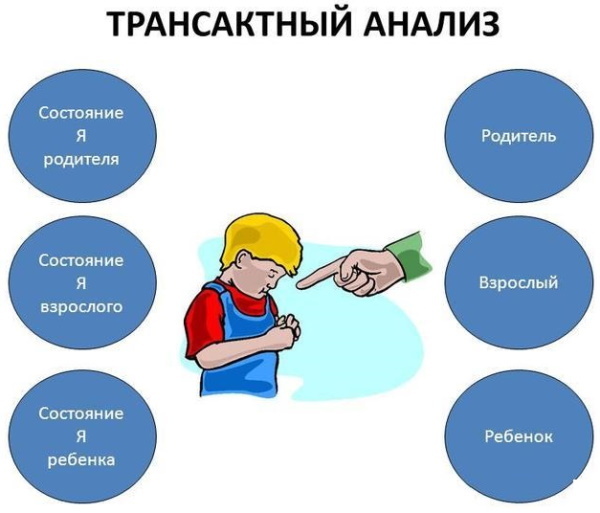
In psychology, transactional analysis is a continuously developing area that is closely interconnected with medicine, psychiatry, and sociology.
Ways to interact with people
Eric Berne identified 3 methods that can be used to communicate with people. These include games, stroking, and transactions. Each of these methods has certain characteristics.
Transactions
A transaction is understood as the process of interaction between 2 ego states of different people. It includes reaction and stimulus. The transaction makes it possible to establish communication with people who have a completely opposite or, conversely, a similar ego state.
Stroking
This method is aimed at establishing a relationship between the states of the parent and the child.
In psychology, there are 3 types of stroking:
- physical - pats on the shoulder, handshakes;
- non-verbal - winking, gestures, facial expressions;
- verbal - compliments, praise.
It is important to be able to distinguish between negative and positive strokes from each other.
Games by E. Bern
Within the framework of psychoanalysis, according to Berne's theory, certain games are distinguished. They are behavioral stereotypes that are formed unconsciously.
A stereotype can consist of several parts:
- weakness;
- traps;
- answers;
- reckoning;
- rewards;
- blows.
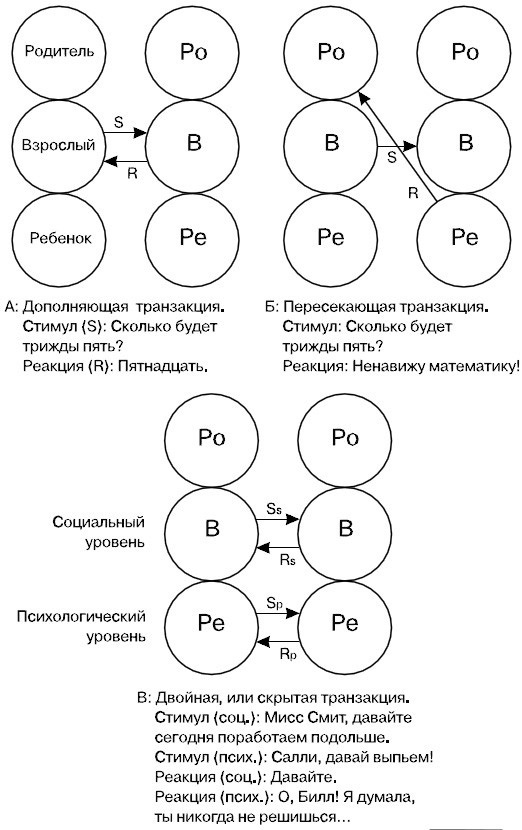
In the process of influencing a person in a certain way, a variety of feelings arise. The closer the end of the game, the stronger the individual's feelings are manifested. Eric Berne has identified 6 types of psychological games.
They are classified according to the following criteria:
- zones;
- clinical types - depressive, paranoid, hysterical, obsessive;
- the objects used are games in which parts of the body, words, objects are involved;
- number of players;
- psychodynamics - projection, introjection;
- instinctive attraction.
Psychological games must meet the following characteristics:
- fascination, tenacity - people should carry out the tasks assigned to them with enthusiasm;
- flexibility - the character traits of individuals are taken into account, different materials are used;
- intensity - players are divided into groups depending on their character.
All psychological games, when performed correctly, following all the rules, have a positive effect on a person.
Types of transactions
In psychology, there are 4 types of transactions. Each of them has its own specific features. They must be taken into account when interacting with people.
Parallel
This type refers to the interaction between individuals in whom the stimuli of one complement the stimuli of the other. To build a conversation with a stranger, you need to achieve a reaction.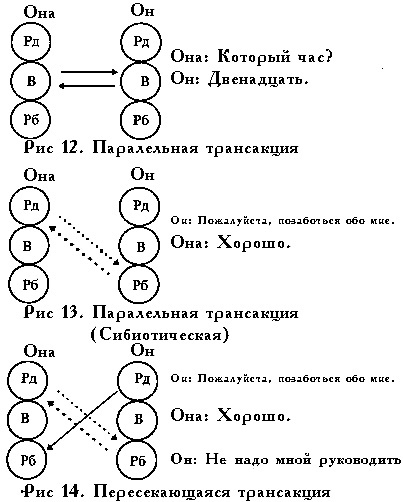 To understand whether a reaction has occurred, you need to wait for an answer to the question.
To understand whether a reaction has occurred, you need to wait for an answer to the question.
Intersecting
This type is manifested most often in conflict situations. On the one hand, the interaction will be represented by an adult, a parent, on the other hand, a child who shows unwillingness to fulfill requests, expresses whims, tantrums. Life situations with overlapping transactions are most often based on quarrels, which in the future can lead to a complete split in the relationship.
Hidden
The mixture of ego states characterizes the latent type of transaction. As an example, the following situation can be cited: an individual has a conversation with an interlocutor on a topic of interest. An individual can say one thing, but at the same time think another, but in fact hide the third. 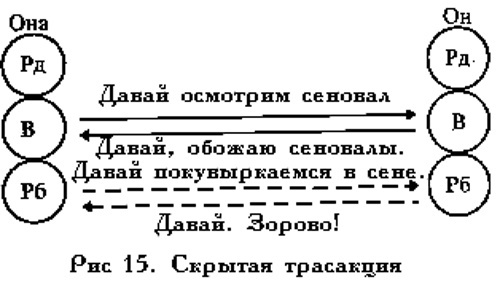 This can cause discord, deterioration in relationships. Such situations cause confusion.
This can cause discord, deterioration in relationships. Such situations cause confusion.
Corner hidden
This type has a second name - manipulative. 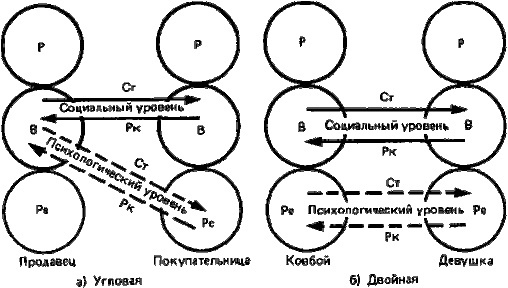 It is a mobile process in which all ego states will be involved at once. An example is a situation when a man comes to a store for a large purchase. The consultants show him various proposals. In doing so, they play the role of adults in order to attract the client's ego-child.
It is a mobile process in which all ego states will be involved at once. An example is a situation when a man comes to a store for a large purchase. The consultants show him various proposals. In doing so, they play the role of adults in order to attract the client's ego-child.
The place of transactional analysis among the directions in psychology and psychotherapy
The analysis is always based on a scenario of real situations. This is an individual plan that is aimed at organizing a person's lifestyle, behavior. A script is essential to formulate a strategy.
The main function of transactional analysis in psychology and psychotherapy is to reconstruct the individual against the background of the revision of life goals and attitudes. An important role in the construction of concepts is given to the ability of the individual to understand the stereotypes of his behavior. It is they who interfere with making competent decisions.
In psychology, transactional analysis is a rational way of behaving. It is based on the idea that everyone should trust themselves. He can and knows how to make decisions on his own, not being afraid to openly express his thoughts, feelings and emotions. These principles can be successfully applied in any direction, both in work and in the family.
Transactional Analysis Videos
What is transactional analysis:


